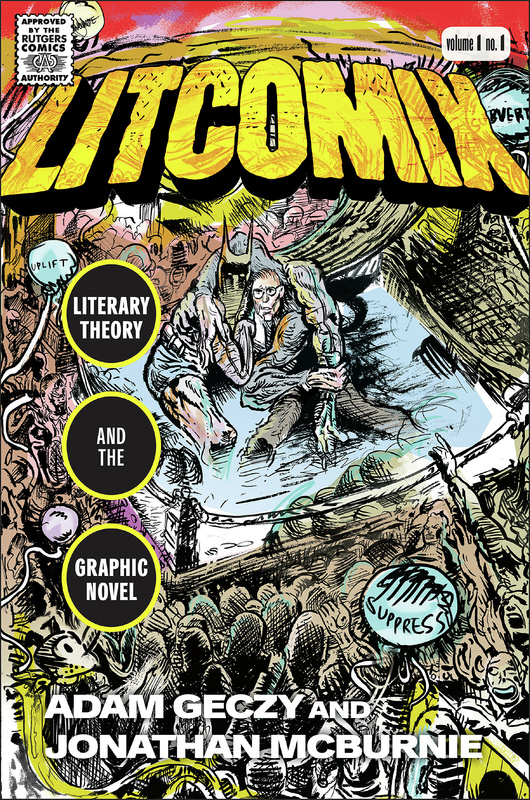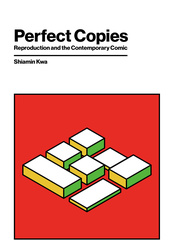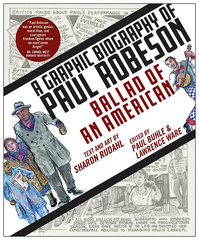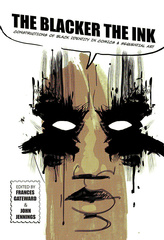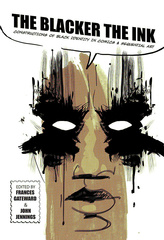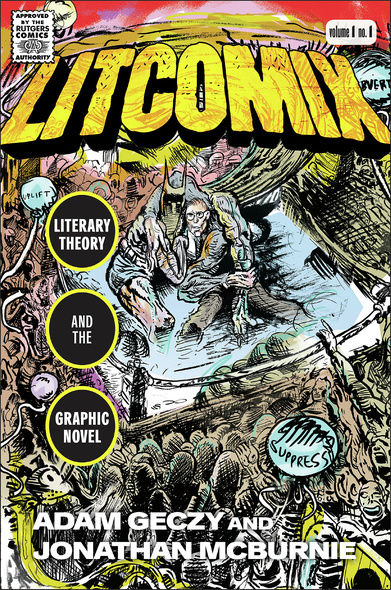
270 pages, 6 1/8 x 9 1/4
34 bw illustrations, 16 color images
Paperback
Release Date:17 Mar 2023
ISBN:9781978828650
Hardcover
Release Date:17 Mar 2023
ISBN:9781978828667
Litcomix
Literary Theory and the Graphic Novel
By Adam Geczy and Jonathan McBurnie
Rutgers University Press
Critical studies of the graphic novel have often employed methodologies taken from film theory and art criticism. Yet, as graphic novels from Maus to Watchmen have entered the literary canon, perhaps the time has come to develop theories for interpreting and evaluating graphic novels that are drawn from classic models of literary theory and criticism.
Using the methodology of Georg Lukács and his detailed defense of literary realism as a socially embedded practice, Litcomix tackles difficult questions about reading graphic novels as literature. What critical standards should we use to measure the quality of a graphic novel? How does the genre contribute to our understanding of ourselves and the world? What qualities distinguish it from other forms of literature?
LitComix hones its theoretical approach through case studies taken from across the diverse world of comics, from Yoshihiro Tatsumi’s groundbreaking manga to the Hernandez Brothers’ influential alt-comix. Whether looking at graphic novel adaptations of Proust or considering how Jack Kirby’s use of intertextuality makes him the Balzac of comics, this study offers fresh perspectives on how we might appreciate graphic novels as literature.
Using the methodology of Georg Lukács and his detailed defense of literary realism as a socially embedded practice, Litcomix tackles difficult questions about reading graphic novels as literature. What critical standards should we use to measure the quality of a graphic novel? How does the genre contribute to our understanding of ourselves and the world? What qualities distinguish it from other forms of literature?
LitComix hones its theoretical approach through case studies taken from across the diverse world of comics, from Yoshihiro Tatsumi’s groundbreaking manga to the Hernandez Brothers’ influential alt-comix. Whether looking at graphic novel adaptations of Proust or considering how Jack Kirby’s use of intertextuality makes him the Balzac of comics, this study offers fresh perspectives on how we might appreciate graphic novels as literature.
Litcomix, an original, extremely interesting book, argues that we should treat graphic novels as serious literature, applying to them the theories that are usually reserved for discussion of ‘serious’ literature. In a most timely account, Geczy and McBurnie present fascinating and instructive examples.
Growing up in the UK during the 1960s, to me, Kirby was 'The Comics.' Kirby created his own genre whose influence is felt to this very day. It's rare to read something so well thought out on my pet subject. Litcomix is a great read!'
As a fellow true believer in comics as a high voltage energy conductor, I recommend Geczy and McBurnie's book, one which highlights and categorizes some of the vibrant new methods and genres of cartooning-art power with a well-researched and passionate curation of contemporary gems as examples. May the kaleidoscopic galaxy of comics continue to unfurl!'
The authors want comics to 'be treated with the seriousness of so-called proper literature.' In this spirit, their book introduces readers to comics makers who should be celebrated for their significant contributions to expanding the horizons of the pleasures of reading.'
'Litcomix frames the notion that comics are long overdue for serious attention, and then delivers that attention in the most informed possible manner. For too long, comics have had the boot of cultural bias on its neck. This book supplants that boot and puts the graphic novel on even footing with the best of literature.'
Reflecting upon central elements of Marxist literary theorist and philosopher Georg Lukács, this admirable volume adds momentum to the speed at which we are recognizing the proper value of the comics art form. Insightful and provocative, once I finished reading this book I wanted to pick it up again and start over.’
ADAM GECZY is an artist and writer who teaches at the University of Sydney. His art has been exhibited across Australia, Asia, and Europe and is in numerous public and private collections. As a writer he has published over 20 books including The Artificial Body in Fashion and Art.
JONATHAN MCBURNIE is an artist and writer based in Queensland, where he serves as director of the Rockhamptom Museum of Art. His articles have appeared in such journals as Eyeline, Catalogue, and Sneaky, and he is author of the graphic novel Floodland.
JONATHAN MCBURNIE is an artist and writer based in Queensland, where he serves as director of the Rockhamptom Museum of Art. His articles have appeared in such journals as Eyeline, Catalogue, and Sneaky, and he is author of the graphic novel Floodland.
Introduction
Introduction
Part I Theories
1 Literary Theory: The Relevant and the Real
2 Recuperating Realism: Lukács
3 Classic Novels, Classic Comics
4 Was Wertham Right? Comics as Antisocial and Subversive
5 The Balzac of Comics: Jack Kirby, World Building, and the Kirbyesque
6 Figurative Pseudonyms: Biography and Confession
Part II Case Studies
7 Josh Bayer
8 Nina Bunjevac
9 Simon Hanselmann
10 The Hernandez Brothers
11 Tommi Parrish
12 Yos hihiro Tatsumi
Conclusion: Our New Urizens
Acknowledgments
Notes
Index
Introduction
Part I Theories
1 Literary Theory: The Relevant and the Real
2 Recuperating Realism: Lukács
3 Classic Novels, Classic Comics
4 Was Wertham Right? Comics as Antisocial and Subversive
5 The Balzac of Comics: Jack Kirby, World Building, and the Kirbyesque
6 Figurative Pseudonyms: Biography and Confession
Part II Case Studies
7 Josh Bayer
8 Nina Bunjevac
9 Simon Hanselmann
10 The Hernandez Brothers
11 Tommi Parrish
12 Yos hihiro Tatsumi
Conclusion: Our New Urizens
Acknowledgments
Notes
Index

